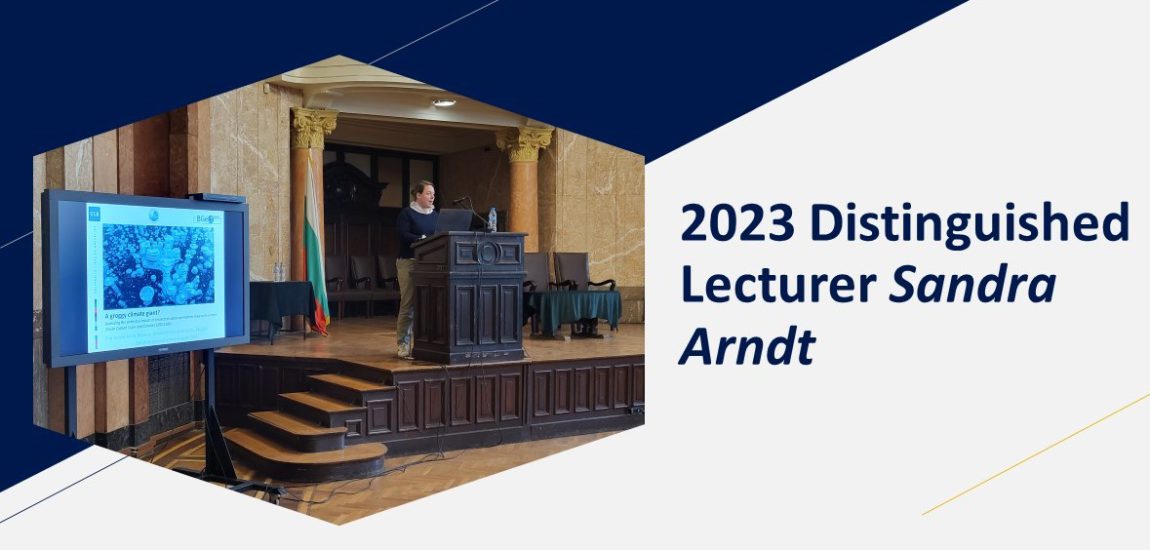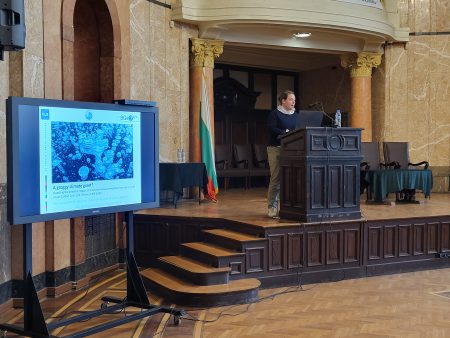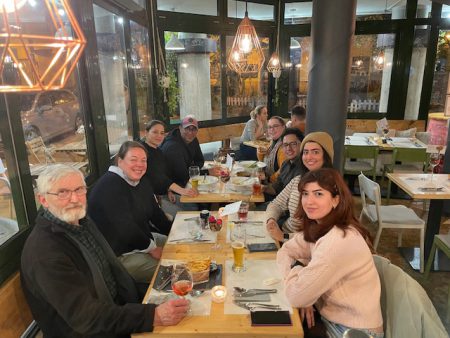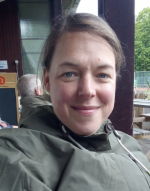
2023 Distinguished Lecturer Sandra Arndt Reports Back From her Tour of Eastern Europe

I have been a fan of the EAG’s distinguished lecturer tour format for quite some time, so you can imagine my excitement when I was asked to be this year’s lecturer. My enthusiasm was particularly fueled by this being an excellent opportunity to demystify biogeochemical modeling a bit: explain how models are built, how they work, how different types of models from diagenetic models to earth System Models can be combined and what kind of data they need and what kind of questions they can answer. Although biogeochemical modeling has been an integral part of (bio)geochemistry research for decades, it is not a subject most geoscience students get easily drawn to and bridging the model-data divide sometimes still remains a challenge. I specifically wanted to highlight the importance of close, interdisciplinary collaborations in model design and set-up and showcase how models act as a platform for knowledge synthesis and integrate multidisciplinary observational and laboratory data. I thus prepared three lectures that spotlight different model approaches, model-data collaborations, and model-model interactions, aiming to unravel the intricacies of complex biogeochemical dynamics that underlie crucial carbon cycle-climate feedback.
Lecture Tour
21 November: Lectures 2 and 3 at Institute of Geography and Earth Sciences, Eotvos University Budapest, Hungary, and online.
22 November: Lectures 1 and 2 at the Czech Geological Survey, Prague, Czech Republic.
14 December: Lecture 1 at the Bulgarian Geological Society Annual Meeting, Sofia University, Bulgaria.
For me, the EAG’s distinguished lecturer tour did not only provide an excellent opportunity to showcase the power of biogeochemical modeling but also an incredible opportunity to widen each other’s view and learn from each other’s experience. I am immensely grateful for the warm hospitality extended by Csaba Szabó in Budapest, Tomáš Magna in Prague and Momchil Dylgerov in Sofia, their research communities, colleagues and students. I really enjoyed the scientific exchange, but also particularly valued their openness and the insight they shared about their national, geoscience research and educational landscapes. It was instructive to compare notes and discuss the pandemic’s impacts on geoscience education, common challenges in student recruitment, international mobility, and geoscience outreach. I also found it fascinating to see how dominant geoscience research interests, methods, and practice change from country to country. I particularly enjoyed delving into the influence of the profound, recent political changes in central and eastern Europe, from the fall of the iron curtain to the eastward expansion of the European Union, on the geoscience research and education landscape. Finally, Csaba, Tomáš, and Momchil also added real personal touch and a genuine glimpse into local history and culture from the Roman remains in Sofia’s metro and a beautiful, hidden coffee shop at the university, to the cozy restaurant tucked away in one of Budapest’s side streets, and the lively atmosphere of the pivnice in Prague’s old town.

I would like to thank the EAG for this opportunity, Marie-Aude Hulshoff for orchestrating a first-class organization, and, once again, my incredible hosts Csaba, Tomáš and Momchil for their warm welcome, the local organization, their openness, and insights. For me personally this exchange has been a fascinating experience, fostering not only professional exchange and connections but also also a deeper understanding of our diverse European geoscience research and education landscape. I hope this sentiment resonates with everyone who attended.
Dr. Sandra Arndt, 2023 EAG Distinguished Lecturer
Watch Recordings of the 2024 Distinguished Lectures!:
Lecture 1: A groggy climate giant? Assessing the potential impact of projected subsea permafrost thaw on the Arctic Ocean Carbon Cycle and Climate (1900-2300)
Lecture 2: Emergency Exit? Mitigation of extreme Oceanic Anoxic Event conditions by organic matter sulfurization in the late Cretaceous Ocean. Recording available here
Lecture 3: Slowing climate change? Potential and risks of enhanced marine silica weathering as a negative emission technology (NET). Recording available here
This report was also published in the April 2024 issue of Elements Magazine

